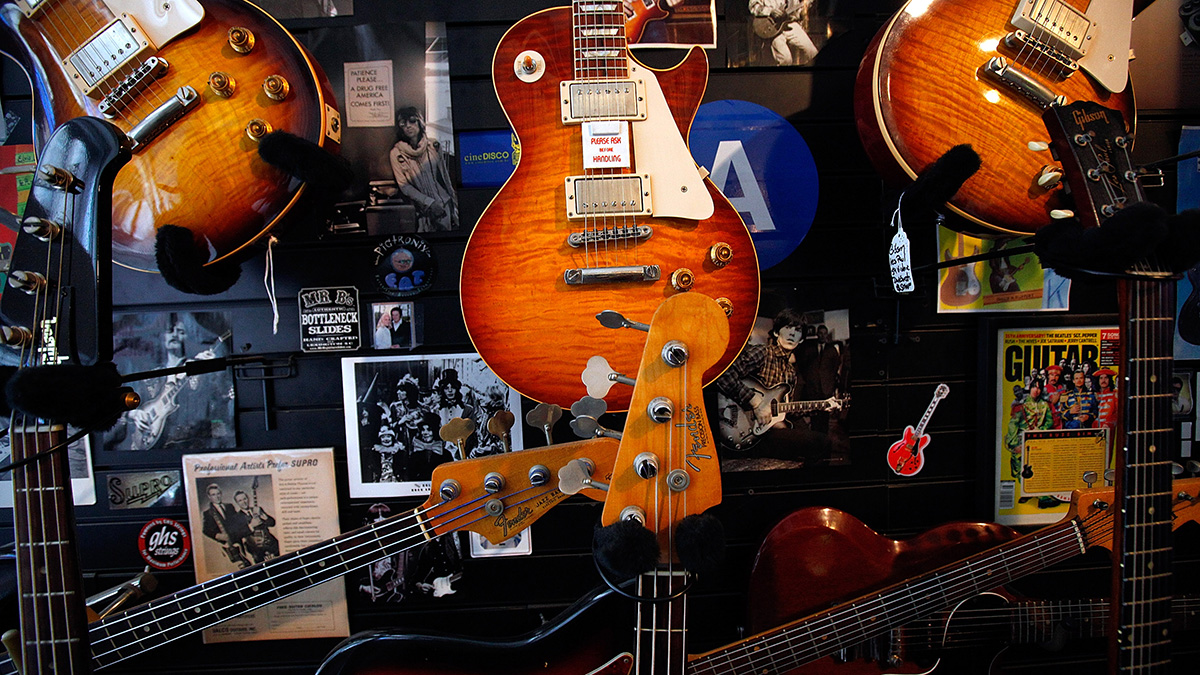Andy Summers: “The Every Breath You Take riff has become a kind of immortal guitar part that all guitar players have to learn”
The Police guitarist takes a trip down memory lane, opening up on how the band found their sound, being too good for punk, and why the creative tension was something to be embraced
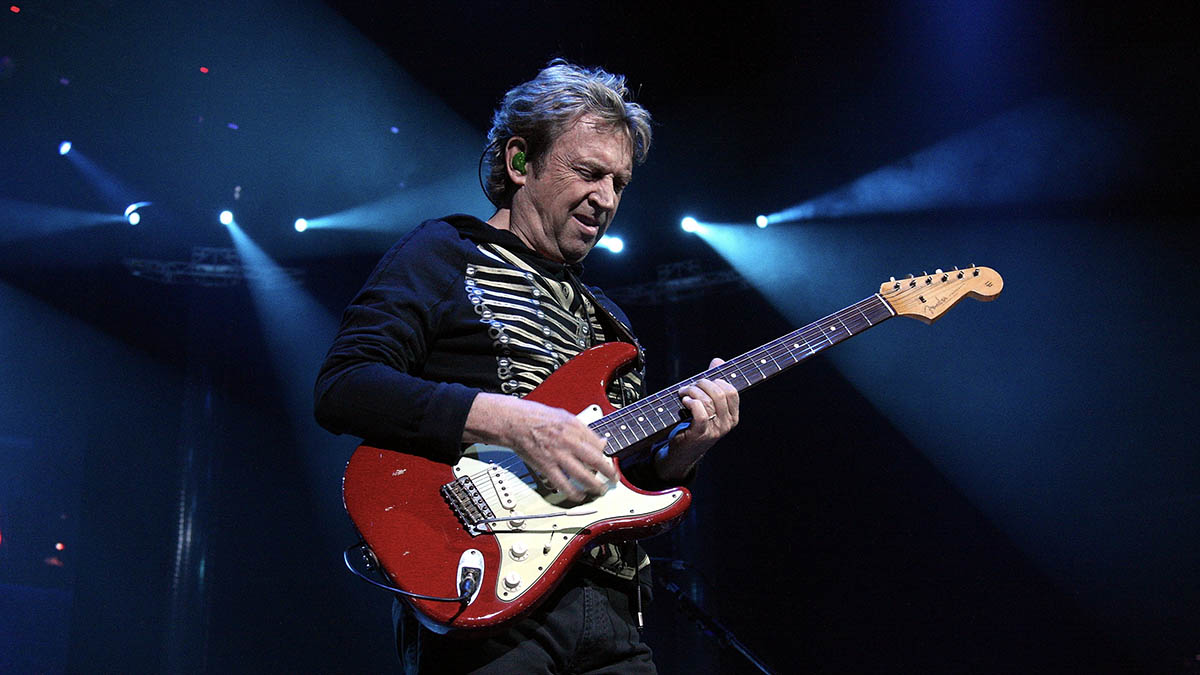
At first sight in ’77, you already knew The Police were too good to last. Virtuoso swans among punk’s puddleducks, the power trio darted from the reggae chop of Roxanne to the cinematic sweep of Every Little Thing She Does Is Magic, and made conquering America look relatively easy.
But if the band’s frontman and principal writer, Sting, was a prolific talent and stone-cold star, then didn’t he just know it.
As the bassist’s creative grip tightened, the tensions that drove the early chemistry with guitarist Andy Summers and drummer Stewart Copeland grew sour, and following 1983’s Synchronicity, they pulled the plug at their peak.
Summers has worn many hats since those days on the force. A jazz cat, soundtrack king and occasional white-noise-maker, he’s been a loquacious friend to Guitarist over the years, though only rarely drawn on the subject of his old band.
Now, though, with a new Police Greatest Hits half-speed vinyl boxset to promote, Summers is happy to revisit those stadium-filling days.
All these years later, which of your guitar parts from The Police do you find most interesting?
“Well, my favorite has always been Message In A Bottle. It’s the best guitar riff and there’s a harmony part as well, which most people can’t get. You’ve got to have the fingers for it. Roxanne. Can’t Stand Losing You. Every Little Thing She Does Is Magic. I like all of them.”
Get The Pick Newsletter
All the latest guitar news, interviews, lessons, reviews, deals and more, direct to your inbox!
The big influence that has stayed with me all my life is Heitor Villa-Lobos, who wrote the greatest guitar music – I think – ever written
Did you have a philosophy when it came to your Police parts?
“Very much so. Apart from all the sonics, I would never play things like big barre chords with major 3rds. One of my signature things was to make it harmonically neutral, so the songs didn’t have this sort of 19th-century romantic chord progression.
“We came from a modern place, which in my case was done by using not the major 3rd but the added 9th or the major 2nd, because that sounded hip and modern to me. It wasn’t like tricky or extended jazz chords, and it wasn’t like romantic 19th century harmonic progressions. It was something else.”
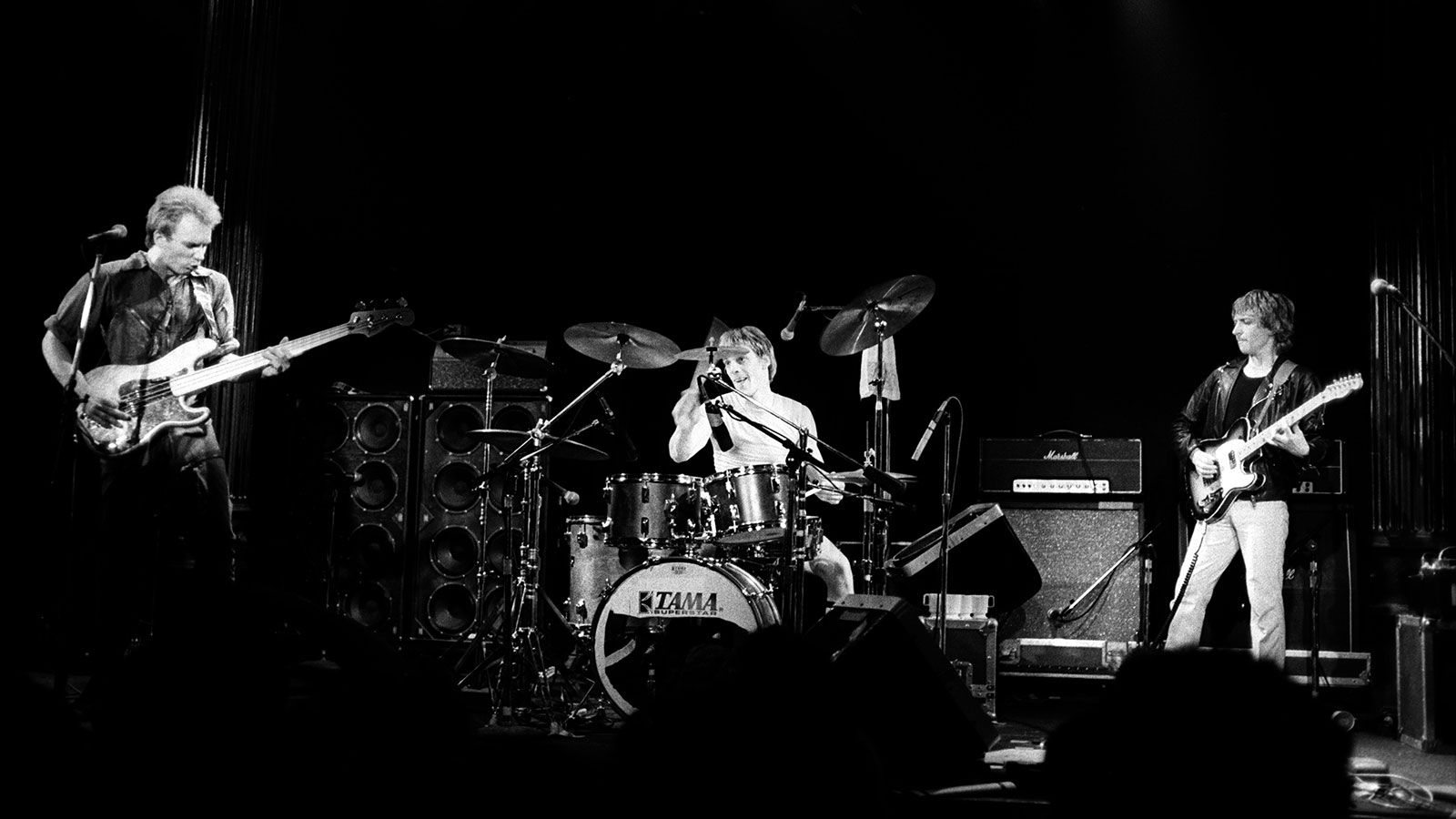
Did you have different influences to other players on the scene?
“Yeah, that was a big thing. Of course, probably the first thing I tried to play was Apache, but then you progress beyond that. I mean, I started out as a kid trying to copy Wes Montgomery. I could play the whole solo from West Coast Blues by the time I was 15. And that was back in the days when you slowed an LP down. Thousands of hours of doing that.
One of the reasons we became so popular was because we didn’t sound like anybody else. It was the unique chemistry of three particular individuals
“So, for me, it was Wes Montgomery and Kenny Burrell. Jimmy Raney, who was I think the greatest in the bebop style. Very fluid, wonderful touch. My ear – my interest, harmonically – went to the jazz guitarists and trying to figure out how you play over all the changes.
“And then, of course, I was into Sonny Rollins, Miles Davis and John Coltrane. Later, I got into classical guitar and the big influence that has stayed with me all my life is Heitor Villa-Lobos, who wrote the greatest guitar music – I think – ever written.
“I’ve played those all my life, on and off. They’ve always been under my hands. I was influenced by all these things, trying to pull it into something that I felt expressed me. But one point of connection between me and Sting, right at the start, was that he’d had a very similar background. He’d grown up listening to jazz, been in a jazz-fusion group and he liked classical guitar, Bach and Villa-Lobos. Same as me.”
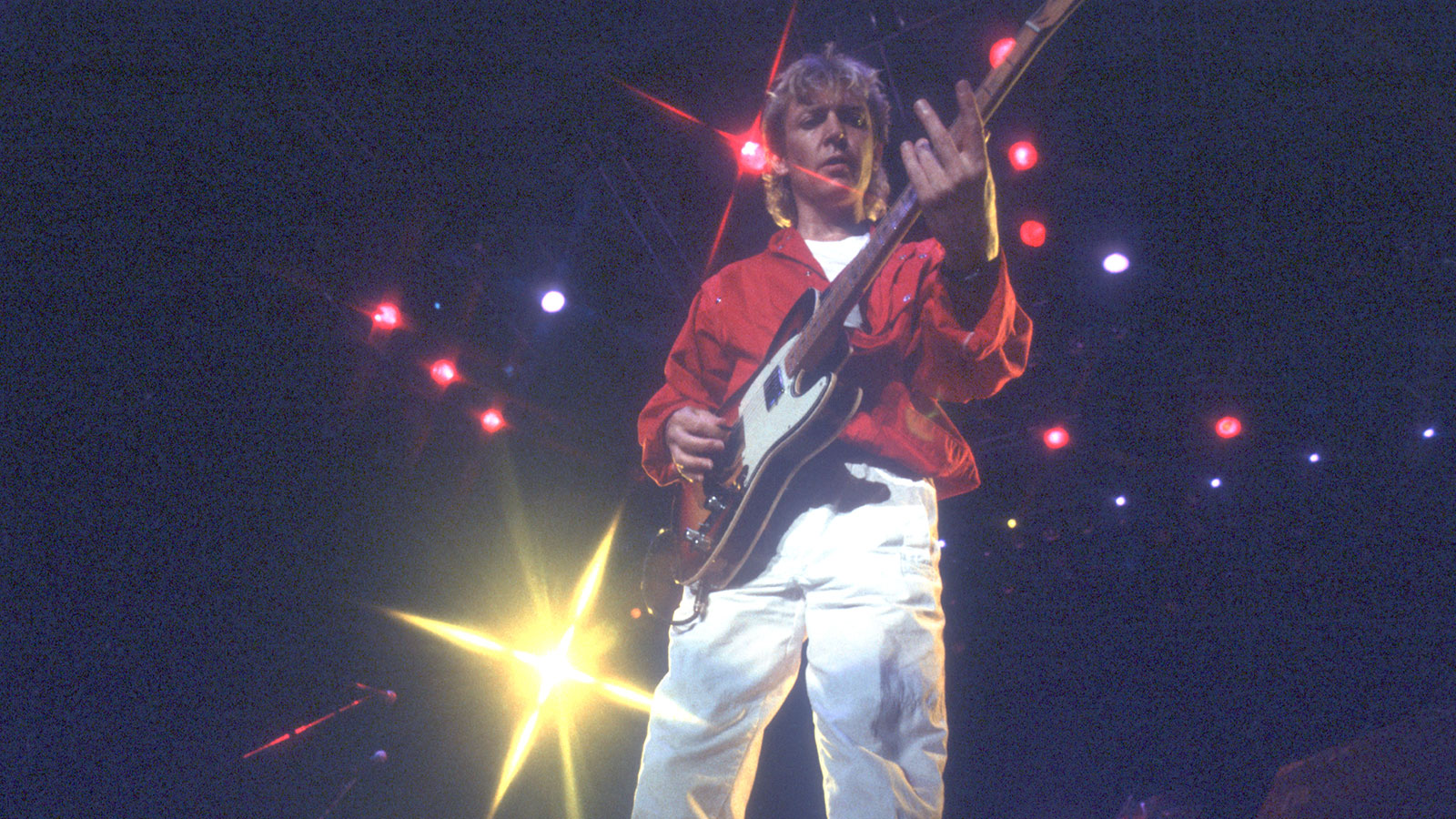
Every breath you took
The Police – and your playing – seemed different to the punk scene.
“One of the reasons we became so popular was because we didn’t sound like anybody else. It was the unique chemistry of three particular individuals. One different [band member] and it would never have sounded like that.
First of all, you’ve got to be a player. You cannot use gear to substitute for great playing
“But it grew about organically, just through rehearsing. No-one would give us a gig because we weren’t pure punk. We were sort of... too good. So we got shut out until we came to the US.
“We did a lot of rehearsal in dank London basements, and that’s where it all started to come together. There was no pressure. It was just, like, ‘Let’s find our music.’ Sting started to emerge as a songwriter. I was getting into effects pedals, and Stewart was finding his hi-hat rhythms. It just grew organically into this signature sound.”
When the Every Breath You Take riff came off your fingers, were you aware of that being a special guitar part?
“Well, I didn’t stand there and crow about it. It was more about keeping those other bastards happy. That song was going to be thrown out. Sting and Stewart could not agree on how the bass and drums were going to go. We were in the middle of Synchronicity and Sting says, ‘Well, go on then, go in there and make it your own.’
“And I did it in one take. They all stood up and clapped. And, of course, the fucking thing went right round the world, straight to No 1 in America. And the riff has become a kind of immortal guitar part that all guitar players have to learn.”
Sting picked up on the convenience of the reggae bassline, so he could sing more and not have to play as much. Which is typical Sting – lazy motherf***er
Where did the reggae flavor of songs such as Walking On The Moon originate from?
“Well, that song came from a diabolical Christmas when we were freezing and starving. Stewart loaned Sting his Bob Marley records and I think what happened is that Sting kind of picked up on the convenience of the reggae bassline, so he could sing more and not have to play as much. Which is typical Sting – lazy motherfucker. So that’s what happened. And it worked.
“People would go, ‘Oh, you’re a reggae band.’ We weren’t a reggae band! I mean, of course, everybody loved Bob Marley, who was the greatest of all of them. But we had no pretensions to being a reggae band. It was just that the convenience of that bassline in the middle tempo was something we could do. It was lovely because it gave me space to put in those big chords like on Walking On The Moon.”
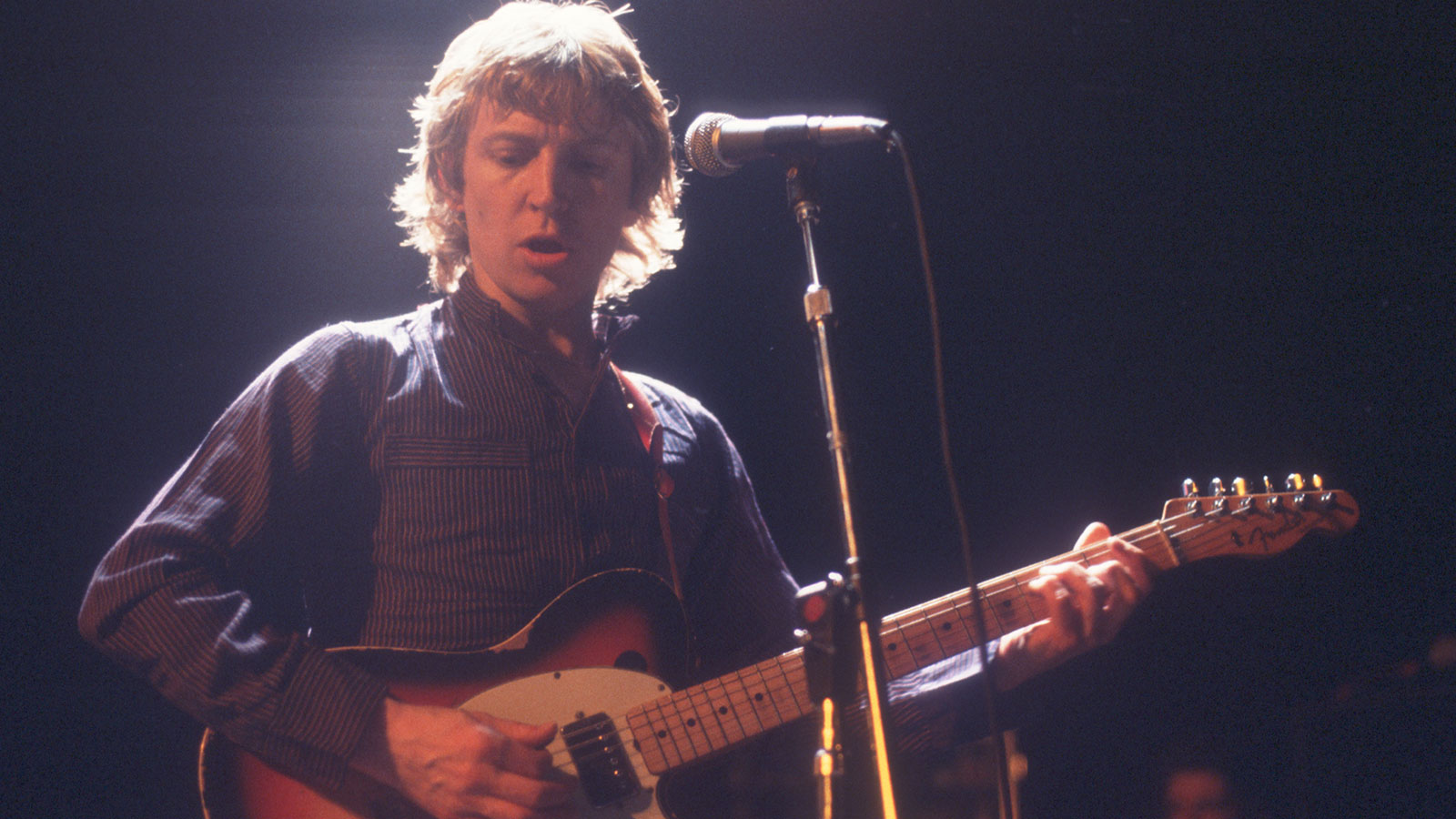
Get to the chorus
You were noted for your distinctive use of chorus. What was the attraction to that
“It was a very simple idea that if we were going to be on stage for two hours a night, I needed to change the guitar parts or the sound. And I enjoyed doing that, y’know, combining various pedal effects and making each song have a different sonic character. The chorus thing wasn’t there at the beginning. But maybe two years in, suddenly it was this fantastic new sound for the guitar and everybody had to get it.
First of all, you’ve got to be a player. You cannot use gear to substitute for great playing
“In stereo, you could get this huge, shimmering sound coming out of a big PA system – pretty impressive. Instead of just a little Twin Reverb halfway back up the stage, honking away. Almost every player used chorus at that point. 20 years later, it does sound a bit dated. I don’t really do it any more because it sounds so much of that period.”
How did your Police setup change over the band’s lifespan?
“Judicious knob-twiddling, that’s all we had at the beginning. I started off with a single Phase 90 that was taped to the floor – which sounded like a 747 going over your house – and however I could set the controls on a Twin Reverb to get a sound I could work with.
“Then the chorus came about, and then I got into the Echoplex pedal, which was fabulous, and I could create these sort of 16th-note rhythms. So that started to open up the sound of the band.”
You had a Pete Cornish pedalboard as well, didn’t you?
“Yeah. Suddenly, going from absolute dire poverty to having a few bob to spend on gear, I ended up getting a Pete Cornish ’board. It got more and more sophisticated over the years.
“Later on in the life of The Police – and certainly on the reunion tour – I had a very sophisticated ’board, which was operated offstage. I didn’t even have a lead. I mean, all this takes a lot of money, but that’s where you get to. But first of all, you’ve got to be a player. You cannot use gear to substitute for great playing.”
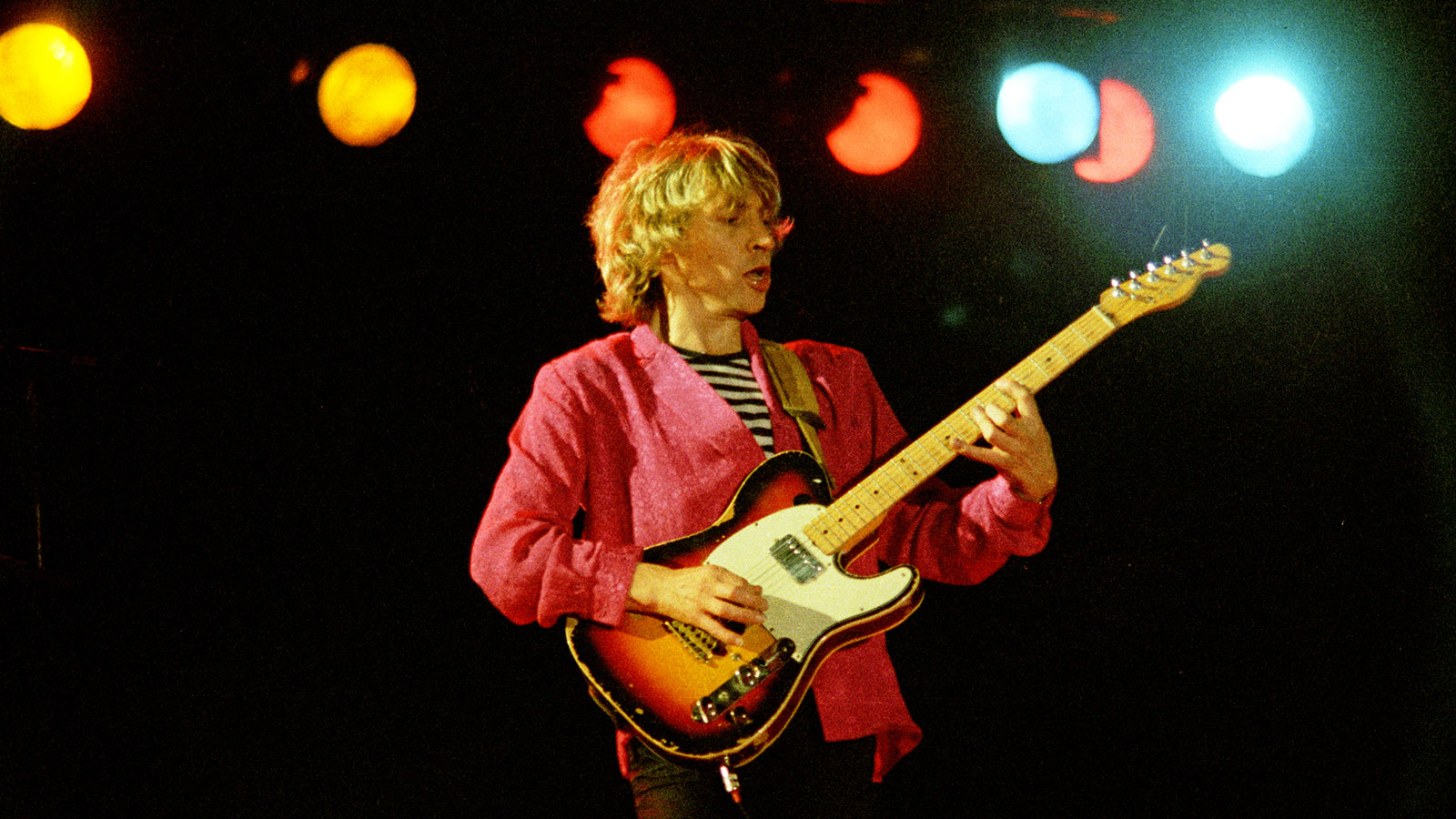
On the Tele
When we think of you in The Police era, we picture you with a Tele...
“Well, the Telecaster is a marvelous instrument. It doesn’t feed back, it’s a solidbody, you can get a range of tones. I had a five-pickup switch, so on that original ’61 Tele, I could get a marvelous out-of-phase tone that was very bluesy and distinct.
My Tele was completely hybrid – humbucker at the front, single coil by the bridge. I had an overdrive unit built into the back
“Mine was completely hybrid – humbucker at the front, single coil by the bridge. I had an overdrive unit built into the back, which was powered by a nine-volt battery, and a different set of switches. Not standard Tele stuff.
“Y’know, it was half a Les Paul, half a Telecaster. Not a true Telecaster. But, of course, everybody loves it. It’s been reproduced by Fender, and the guitar itself, I think, is more popular than me. It’s a great guitar. I’ve still got it.”
What were your amplification choices through the Police years?
“I started with a Twin Reverb, which is a classic standard amp. But as the concerts went on, of course, I had to have Marshalls. And then at one point I added in a Mesa/ Boogie, which I could switch over to for solos. It was okay. I thought it was only semi-successful. I’m not a huge tech-nut. It’s always about the playing. These things help you, of course. But I’m not a geek.”
How did you approach the recording process in The Police?
“Well, the last two records were done in Montserrat [at AIR]. Synchronicity was just me, alone in the studio with all my kit. Sting in the control room playing the bass through the Neve desk. And Stewart up in the room above the studio because of the acoustics and the separation that Hugh Padgham [producer] wanted. We played most of those tracks with earphones.”
Friction and force
Since The Police, you’ve explored so many different styles. If you were recording those classic parts today, would you play them differently?
“Well, I would consider it. But those parts have become kind of immortal – I can’t really dick around with them too much. They are what they are. But I never played any of those parts the same way, any night.
“I mean, I grew up being an improvising guitar player, not someone who just learnt to play ‘pieces’ as they were. I’m all over it. I like to play things in different positions, try different things, add little notes on top.
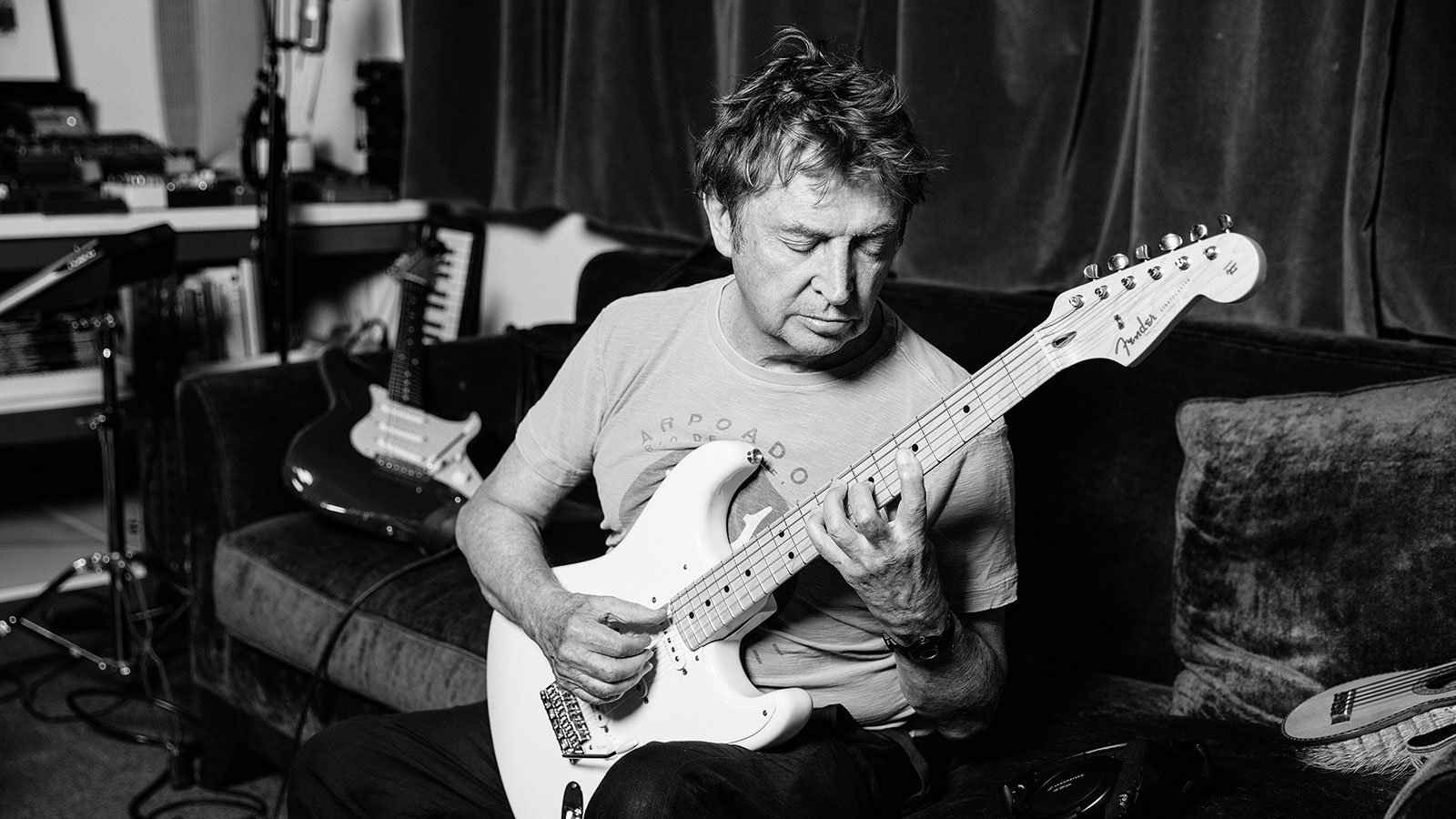
“We were always like that in The Police. Nothing was ever really set absolutely. The thing about the band was that we never really labored over anything. It was all kind of fast, and some of the songs would be made up at soundchecks, and that was the spirit of the band.
“We were very good at playing together. We weren’t stymied or stuck for ideas. It was a pretty talented set of musicians. It worked. We were lucky that we found our thing early on and we just expanded on it. We could play anything, really.”
There’s a theory that friction creates good music. Was that true of you, Sting and Stewart?
“Yeah. Because we were all pretty strong personalities. It makes for tension. We didn’t agree on everything. We had to fight it out. It was mostly about the music because offstage we’d all hang out together. But that friction – that tension – actually gives it a lot. And I think the audience picks up on that.
“My classic phrase to describe it is the sound of tight compromise. If you’ve got three very mellow guys who all agree, the music’s probably going to sag a bit. We were very thrusting individuals. Each guy wanted to be at the front.”
- The Police: Greatest Hits (Half-Speed Remaster Double LP) is out now via A&M
Henry Yates is a freelance journalist who has written about music for titles including The Guardian, Telegraph, NME, Classic Rock, Guitarist, Total Guitar and Metal Hammer. He is the author of Walter Trout's official biography, Rescued From Reality, a talking head on Times Radio and an interviewer who has spoken to Brian May, Jimmy Page, Ozzy Osbourne, Ronnie Wood, Dave Grohl and many more. As a guitarist with three decades' experience, he mostly plays a Fender Telecaster and Gibson Les Paul.
“The Beyoncé effect is, in fact, real. I got a lot of traffic just from people checking the liner notes”: With three Grammy wins and plaudits from John Mayer, Justus West is one of modern session guitar’s MVPs – but it hasn’t been an easy ride
“You might laugh a little. The post office shipped your guitar to Jim Root”: This metal fan ordered a new guitar from Sweetwater – but it ended up with the Slipknot guitarist









![John Mayer and Bob Weir [left] of Dead & Company photographed against a grey background. Mayer wears a blue overshirt and has his signature Silver Sky on his shoulder. Weir wears grey and a bolo tie.](https://cdn.mos.cms.futurecdn.net/C6niSAybzVCHoYcpJ8ZZgE.jpg)

![A black-and-white action shot of Sergeant Thunderhoof perform live: [from left] Mark Sayer, Dan Flitcroft, Jim Camp and Josh Gallop](https://cdn.mos.cms.futurecdn.net/am3UhJbsxAE239XRRZ8zC8.jpg)




